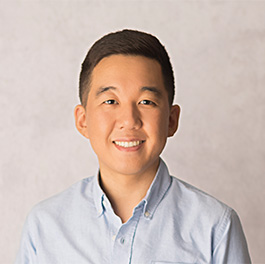Paul ChangSenior Manager of Strategic Planning & Data Analytics at Salesforce

About
Paul is a Senior Manager of Strategic Planning & Data Analytics at Salesforce. In this role, he focuses on uncovering data-driven insights and collaborating across the Customer Success organization to create innovative products and services that help customers achieve sustained success using Salesforce. Prior to joining Salesforce, Paul spent several years as a Strategy & Operations Lead at Google, and as a management consultant at Bain & Co. In each of his roles, Paul has coupled both analytic and strategic thinking to drive impact for external clients, internal stakeholders, and end users alike. Paul was drawn to the MMM program because of an interest in how human-centered thinking enables new approaches to problem-solving and how that can help businesses innovate for the future. He began his career in the healthcare industry, where he had roles in analytics, finance, and strategy.
Q & A
How has MMM made a difference in your career?
MMM was a valuable training ground for me to learn to work through ambiguity. More specifically, it taught me frameworks to define problems within unfamiliar environments and gave me the tools to creatively develop outside-the-box solutions. This flexibility has been key to my post-MBA career, first as a management consultant supporting clients across multiple industries, and then later as I transitioned into the tech industry.
What value do you think MMM graduates bring to industry now?
Perhaps now more than ever, business leaders need to be flexible, creative, and empathetic to succeed in a constantly-changing world. MMM graduates are trained to develop all of these traits and have the versatility to thrive and add value in any organization. Regardless of the role or industry, there is always a need for innovation and human-centered thinking.
What advice do you have for a student just starting the MMM Program?
I would encourage students to fully engage with the experiential projects like RDB and Business Innovation Lab. Some of my biggest lightbulb moments about the innovation process came from working through the challenges of those projects, spending late nights re-writing problem statements, and poring over post-it notes. They also gave me the opportunity to work alongside my classmates and develop a deep appreciation for the diverse talents and perspectives that they brought to the table.
